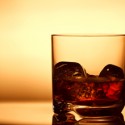Alcohol rehab numbers outstrip hard drugs
Alcohol has again outstripped illicit drugs like heroin and ice as the number one reason for admissions at a major Australian rehab service.
Problem drinking topped Odyssey House’s 2009 admission list, because 26 per cent of those seeking care over the year named it as their “principal drug of concern”.
It was fractionally down from the 29 per cent of Odyssey House admissions last year, and 28 per cent in 2007, but it still headed the list for the third year running.
Alcohol has done so since 2007 – when Odyssey House’s drinking-related admissions exceeded those for illicit drugs for the first time in 30 years.
“While the public focus is currently on teenage binge drinking, alcohol problems don’t just stop when Schoolies Week is over,” said Odyssey House CEO James Pitts.
“Many of these young people are the alcohol dependent adults and rehabilitation clients of the future.”
While alcohol was the major sole factor, Mr Pitts said 70 per cent of admissions also listed it as “among their reasons for seeking treatment” and this demonstrated how pervasive alcohol dependence had become across society.
It was also viewed as an “easily accessible, socially acceptable and relatively inexpensive drug to self-medicate life’s difficulties and challenges for older people”, he said.
Amphetamine-type substances including ice and ecstasy accounted for 21 per cent of Odyssey House admissions in 2009 (23 per cent in 2008), while heroin and cannabis each accounted for 18 per cent (19 per cent and 18 per cent respectively in 2008).
Methadone accounted for eight per cent of admissions, while gambling and other drugs like benzodiazepines, buprenorphine, morphine and cocaine accounted for nine per cent.
Mr Pitts said the rise in alcohol-related admissions had driven a upward shift in the age of those now commonly seeking help.
The proportion aged 18 to 25 had fallen from 42 per cent in 2003 to 25 per cent in 2009 as this younger group, although engaged in problematic drinking, were less likely to have reached a crisis point.
“As they get older and have a responsible job, a mortgage and a relationship, being regularly drunk or hung-over becomes less of a badge of honour and more of a burden to them and those around them,” Mr Pitts said.
“That’s when they get serious about seeking professional help.”
Overall, the 18-30 years age group fell from 69 per cent of clients in 2003 to 52 per cent in 2009, while the 31-plus age group rose from 31 to 48 per cent.
Mental illness was also on the rise among those seeking admission, with 46 per cent of admissions in 2009 registered as co-existing with depression, anxiety, schizophrenia or bipolar disorder.
This was up from 44 per cent last year, while alcohol-related depression remained the most common condition.
Sydney-based Odyssey House is one of Australia’s largest drug and alcohol rehabilitation organisations and it has helped more than 30,000 people across NSW over 32 years.
It took in 654 new admissions during 2009, including 26 families (and 37 young children) who were given cottage accommodation as they undertook rehabilitation and parenting skills courses.
source: Herald Sun


